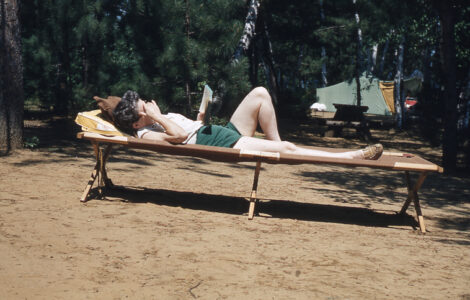Postal service
My three letters lay on the bottom of the collection box – lonely and somewhat pitiable. To the extent that I’d ever envisioned the insides of mail boxes, I’d thought they must be pretty well stuffed. After all, trucks show up about twice a day to empty them. Surely they wouldn’t be doing that to pick up just a handful of letters. It was one more of life’s enduring mysteries.
What had happened was that I’d been on my way into the village offices with a check for my taxes. When I got to the desk, I didn’t have the check. Uh oh. I must have carelessly dropped it in the mail box along with the three letters. Now, I don’t mind paying taxes. It’s a civic duty that I perform every year without resentment. Taxes make communal life possible. But I don’t care to have a loose check adrift among the letters and packages of the United States Postal Service.
The check was not in an envelope with a return address, and my address was not printed on the check. What would become of it? Even if a check is properly enveloped and addressed, things can happen. I once mailed a check to the IRS, and it never got there. That was bad. Persuading the IRS that the check is in the mail is a challenging endeavor.
I hustled up Main Street to the Post Office to see what I could learn about what would happen to my wayfaring check. I didn’t expect much from the inquiry, but I had to ask. Mark, a helpful, seemingly constant, fixture behind the desk (does the guy ever take a lunch break?), treated my question routinely. I got the impression that I wasn’t the first person to drop something that wasn’t mail in a mail box.
“You need to speak to the Postmaster.” Or maybe he said “Postmistress.” I don’t remember. In any case, the person in question, Denise Lapierre appeared immediately, and in an outstanding example of postal service offered to meet me at the box, and we’d retrieve it. A few minutes later she opened it, and there were my three letters on the bottom of the box, alone and palely loitering. But no check. (Later, I found it on my desk.)
I enjoyed a couple of follow-up conversations with Denise, from which I garnered odd bits of information.
She oversees seven offices in addition to Saranac Lake. Vehicles are used for all home delivery in Saranac Lake, but walking is not eliminated entirely. On City One Route, Wayne covers ten miles a day on foot. The volume of mail is lower in summer. One of the requirements for working for the USPS is to be able to lift seventy pounds. Some dogs are hostile to letter carriers when in uniform but friendly when the carrier is not in uniform. (“Leave off the snarling, Fido. You know me. I’m your friend Joe.”)
Denise has been employed by the USPS for 17 years. That’s a fairly long time, but in that period she has never experienced a number of the postal ways that old people like me remember, such as twice-a-day delivery, mail men (not letter carriers), those big leather pouches that used to be standard issue.
Also, though I don’t know how old she is, I think she’s probably too young to have experienced the personal letter as a primary means of human interaction.
I recently bought a second-hand copy of The Letters of E.B.White. It’s some 650 pages long. White died in 1985, and that was not so long ago, at least it doesn’t seem so to me. But written communication has changed immeasurably since then.
The president of the most powerful country in the world communicates even some very important matters of national policy via Twitter. (The maximum length of a tweet is not stated in words; it’s 140 characters. Is language itself on its way to extinction?) Unlike the president, Hillary Clinton has probably written a number of personal letters, some even in longhand, but she is nevertheless strongly associated with emails, the missing kind in particular.
Military personnel actually deployed in combat now enjoy a certain amount of electronic communication with folks back home. I wonder if there is even a mail call anymore? It’s unthinkable that young backpackers are still standing around American Express offices in far-flung places waiting and hoping for a letter from home the way we used to do. My granddaughter spent six weeks in Mexico this summer. To my knowledge she sent no post cards or letters, but relied rather on text exchanges so frequent it was almost as if she had never left home.
So then, is the personal letter, handwritten on good paper, on its way to becoming a historic artifact taking the postal service with it? Perhaps to some extent, but probably not entirely. Serious thank-you notes, condolences, and love letters will surely be around for as long as people feel gratitude and experience loss and fall in love, which is to say, forever.
Paul Willcott publishes somewhat longer essays about once a month on his national award winning blog, www.geezerblockhead.com.


